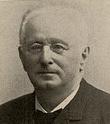Ignatia [Ign]
Dry, hollow, spasmodic cough, caused in the evening by a sensation like from fumes of sulphur, or from dust in pit of throat, in the morning from a tickling above the pit of stomach; THE LONGER HE COUGHS THE MORE THE IRRITATION TO COUGH INCREASES; cough during a walk every time he stands still, or after warm drink; sleepy after each coughing spell; expectoration in the evening, rarely in the morning, difficult in the evening, tasting and smelling like old catarrh; especially suitable to young people and women. With every cough or sneeze, stitching, lancinating pains in affected hip or in haemorrhoidal tumor or in penis, as if blood suddenly rushed in.
Illicium-anis [Anis]
After coughing, feeling of emptiness; frequent cough, spitting blood in small quantities and with pus-like phlegm, with pain in the right chest; whitish expectoration.
Ind. [Indg]
Dry cough, always attended with NOSEBLEED AND EXPECTORATION; violent cough, inducing vomiting; suffocative cough in the evening and after going to bed. Pinworms; worm fevers of children.
Iodum [Iod]
Constant tickling and inclination to cough in the trachea and under the sternum; dry morning cough from tickling in larynx and throat; dry cough, with stitches and burning in chest; cough, with expectoration of large quantities of mucus, frequently blood-streaked; expectoration saltish, sour, gray or white; emaciation with wasting fever; itching in lungs low down and extending upward through trachea into nasal cavity; ITCHING AT THE TIP OF THE NOSE IS THE SIGNAL FOR THE COUGH TO BEGIN; (<) in- doors, when lying in bed, especially on back; (>) during day, in cool, open air.
Ipecacuanha [Ip]
Cough rough, shaking; dry from titillation in upper part of larynx; severe suffocative cough, with sweat on forehead; shocks in the head; retching and vomiting; quick, anxious breathing; suffocative attack in the room, from the least motion, better in the open air; coughing so rapid that one hardly gets a chance to breathe, with blueness of face; convulsive evening cough; the chest is full of phlegm, but does not yield to coughing, with rigidity and blueness of face.
Kali-bichrom [Kali-bi]
Wheezing, with retching and expectoration of TOUCH MUCUS WHICH CAN BE DRAWN IN STRINGS TO HIS FEET; cough excited by tickling in larynx, or at the bronchial bifurcation by oppression at the epigastrium, from accumulation of mucus in larynx; cough with pain from midsternum through to back, worse undressing, morning on awaking, after eating; better after getting warm in bed; toothache when coughing; cough painful with difficult expectoration (Hepar: cough loose with easy expectoration); sputa bluish, slate-colored, yellow or white.
Kali-brom [Kali-br]
Paroxysmal, dry cough, at intervals of two or three hours; difficult respiration, followed by vomiting of mucus or food; (<) at night and when lying down.
Kali-carb [Kali-c]
Paroxysmal cough from tickling in throat, larynx or bronchi, with dislodgment of tenacious mucus, or pus, which must be swallowed; spasmodic, with gagging, or vomiting of ingesta and sour phlegm; tormenting, gets nothing up, sometimes feels as if a tough membrane were moving about but would not loosen. Cough day and night, dry and teasing, from after midnight till 3 to 4 A.M., with sticking pains in the sides of chest, brought on by eating (warm food), drinking, motion, sitting erect, lying on side, exposure to cold: (>) after breakfast; chest feels weak pain from walking fast; sometimes hard, white, round masses fly from mouth when coughing or hawking (Bad., Chelidonium); oedema above eyelids; mornings, disappearing during day, constipation.
Kali-iod [Kali-i]
Considerable irritation about throat, causing dry cough, or with expectoration of GREEN MUCUS; syphilitic cases.
Kreosotum [Kreos]
FATIGUING COUGH OF OLD PEOPLE; sputa copious, thick, yellow or white; whistling dry cough, caused by CRAWLING below the larynx or in the upper bronchi, from mucus in bronchi which cannot be dislodged, with dyspnoea; dry, spasmodic cough in the morning, CAUSING RETCHING, with escape of urine and easily detached expectoration; after every coughing spell copious purulent expectoration; periodical blood-spitting, with greenish-yellow pus-like sputa; expectoration of black coagulated blood.
Lachesis [Lach]
Attacks especially the vagus, causing constriction and choking about the trachea (Belladonna, larynx); spasmodic dysphagia and dyspnoea and even slowing of the heart’s action; cough causes lachrymation, watering of mouth and pain in stomach; gagging, persistent cough from tickling in the throat, under the sternum, or in the stomach; worse during the day or on falling asleep, after alcoholic drinks, from atmospheric changes; cough from ulcers in the throat; expectoration scanty, difficult, watery, saltish, must be swallowed; cough as if some fluid had gone in the wrong passage; sense of fulness in the trachea and painful aching in the whole extent of the os hyoides; after a long, dry and wheezing paroxysm of cough there is suddenly a profuse expectoration of frothy, tenacious mucus, the expulsion of which gives great relief; sensation as if something were in the trachea, which might be raised, comes partly up and then goes back again; cough provoked by tickling in trachea; induced by touching or pressing on it or by throwing the head back or by eating; worse on awaking from sleep; accompanied by hoarseness and sore throat, pain shoots up into the ear, also by chronic tonsils with oily white granules. At every cough a stitch in the haemorrhoidal tumor (Ignatia).
Lactuca-virosa [Lact]
Cough, disturbing the night’s rest, from a spasmodic irritation of the laryngeal and pharyngeal nerves; periodic cough, in short paroxysms, shaking the abdomen; INCESSANT SPASMODIC COUGH, which threatens to burst the chest, caused by tickling in fauces and sensation of suffocation in throat, followed by copious mucous expectoration.
Laurocerasus [Laur]
Short, titillating cough and dyspnoea from HEART DISEASE; cannot lie down; wheezing, with sensation as if the mucous membranes were too dry, with copious jelly-like sputa, dotted with bloody points; (<) from motion, stooping, warmth; cough very dry and hard, caused by a tickling in pit of throat and in centre of chest, as if there were lung fever; dry, teasing cough of consumptives, (<) at night.

